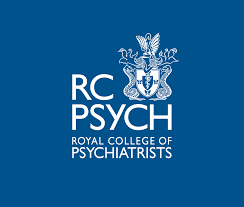Breaking the Stigma: Addressing Mental Health Challenges Among Young Men in the UK

"You don’t have to control your thoughts. You just have to stop letting them control you."
Dan Millman
Mental health is a critical issue for young men in the UK and the world, yet it remains one of the most under-discussed topics in society. Traditional gender norms often discourage men from expressing vulnerability, leading many to suffer in silence. The reality is stark, suicide remains the leading cause of death for men under 50 in the UK, more common than heart disease and cancer and. Mental health issues such as anxiety, depression, and body dysmorphic disorder (BDD) are increasingly prevalent. Breaking the stigma around men’s mental health is essential to ensuring young men receive the support they need.
The Growing Mental Health Crisis Among Young Men
Despite increasing awareness of mental health issues, young men still face significant barriers to seeking help. Societal expectations around masculinity typically dictate that men should be ‘tough’ and self-reliant, making it harder for them to open up about emotional struggles. Common mental health challenges affecting young men include:
Depression and Anxiety: Many of us will know young men experience overwhelmed by ing stress due to ever rising academic pressures, career uncertainty, and financial struggles, especially in this age of economic uncertainty in the UK.
Body Dysmorphic Disorder (BDD): The ever present social media and unrealistic beauty and appearance standards contribute to body image issues in men too unlike the popular belief that this is the case with women only, with many young men feeling inadequate about their physique and general appearance.
Substance Abuse: This age old problem of self medicating and Some turning to alcohol or drugs as a coping mechanism instead of seeking help and treatment, further which can worsens mental health symptoms. We know that alcohol is a depressant and so are many other illicit drugs freely available to young people.
Suicidal Thoughts: The reluctance to seek help often leads to extreme distress, with men being three times more likely than women to die by suicide in the UK. This figure is particularly alarming and food for some serious thought.
The Importance of Open Conversations
Encouraging young men to speak openly about their mental health and raising awareness and knowledge about mental fitness along with physical one, is a crucial step in breaking the stigma. Normalisation of the topic of mental health, the way we are comfortable with talking about physical health is crucial. Mental health professionals ought to be perceived as people who assist with health and not stigmatised either. Families, friends, workplaces, and educational institutions all play a role in fostering a supportive environment. This would mean that we all have a role to play, by having open conversations which can help in different ways. It normalises discussions about mental health, hence encourages early intervention, so the problems can be ‘nipped in the bud’, rather than progressing to alarming levels. It reduces the feeling of being isolated or different, encouraging people to seek care. This will all result in promoting healthier coping mechanisms and not hiding or ‘putting up a strong face’ for the sake of others.

Support Systems That Make a Difference
More recently there has been more readiness in the society in general and men to talk about mental health which they consider their vulnerabilities. Government and non-profit organisations are being established to help raise awareness and reduce stigma. Additionally, there are actions men can take that may be steps towards recovery and relief.
1. Encouraging Peer Support: Build and maintain friendships
Building strong and close friendships where young men feel comfortable discussing their struggles can be life-changing. Male-focused support groups and online communities can provide safe spaces to share experiences.
2. Accessing Professional Help: Government and Non- Government Groups
Therapy, counselling, and mental health hotlines are valuable resources. Charities such as CALM (Campaign Against Living Miserably) and one such charity specifically to support men and prevent suicide is https://andysmanclub.co.uk/. November work to provide tailored support for men’s mental health.
3. Promoting Healthy Lifestyles: Mental Wellbeing and Physical Fitness
There is substantial evidence that exercise, balanced proper nutrition, and mindfulness techniques can significantly improve mental well-being. Encouraging young Men like everyone else are encouraged to engage in some form of physical activity, whether it is walking, jogging, sports, gym workouts. Meditation can help putting things in context and make the person calmer and channel anxiety stress in positive ways.
4. Challenging Toxic Masculinity
Unfortunately, there has been a recent surge in toxic masculinity with a rise in the social media concept of ‘alpha males’. This concept is based on the false theory that any form of mental health issue is a sign of weakness and ‘real men‘ stay strong regardless of the circumstances.
This form of thinking has to be strongly challenged. Changing societal perceptions of masculinity will can make it easier for young men to express their emotions as this may be the main deterrent for men to find help even when they desperately need to. We as a society have to find a way to encourage education that enhances emotional expression of vulnerability, hence emotional intelligence in boys from a young age. This will help shift harmful concepts and age old faulty norms. Boys ought to be made to feel that it is alright to cry and express themselves when they feel sad and vulnerable.
Final Thoughts
The stigma surrounding men’s mental health has long-lasting consequences, in recent times there has been a rise of concepts of toxic masculinity. But it is within our power to change this and challenge harmful concepts through our behaviours, conversations and support. Each one of us can do this by fostering open discussions, providing accessible support to our loved ones, and work on reshaping societal expectations. We can create an environment where young men feel empowered to seek help when feeling sad or anxious or stressed without worrying about being negatively judged. No one should have to suffer in silence, mental health is relevant for everyone, and breaking the stigma starts with all of us.
Disorder Related Blogs
- Anorexia Nervosa: Recognise the Quiet Killer
- Patient Talk - What Does Severe Clinical Depression Feel Like?
- Dear Mum: A Story by an Oaktree Patient with Depression
- SCHIZOPHRENIA – A Poem
- Autism: Dispelling Myths
- Mental Fitness: “I Have an Addiction”
Lifestyle Related Blogs
- Preventing Online Burnout
- Sad at Christmas? Help Is at Hand
- Burnout at Work
- Mental Fitness: How to Beat Stress
- Mental fitness: Brain Stimulation Therapy
- Mental Fitness: When Should You Stop Driving?
- Mental Fitness: “Let Us Talk About It”
- How to Combat Work-Related Stress
- Foods that make you happy
- Business Spending on Mental Health, Worth it?
- Employers Need More Awareness of Mental Health Issues
Other Blogs
Are you a leader and need mentoring or coaching? We may be able to help. Contact us at contact@oaktreeconnect.co.uk.
Dr Singh is the consultant psychiatrist with a special interest in neuropsychiatry. Having seen and treated hundreds of patients with ADHD, in London and Birmingham and with masters in Neuropsychiatry, she is well known as an expert in this field.
Contact:
Email – clinicadmin@oaktreeconnect.co.uk
Telephone – 020 39277699
Recent Blogs
Oaktree Connect Fees & Pricing for Other Services
There may be additional fees payable after your assessment, for which you will receive an invoice: for example, for the costs for prescribing medication agreed between you and the psychiatrist at the time of assessment. We try our utmost to stay within the time allocated for the appointment however, you could be charged for any extra time spent in the consultation, if the meeting runs over the allocated time, or where communications with you or reviewing notes etc. exceeds what is deemed reasonable, but this is at the discretion of the clinician.
















